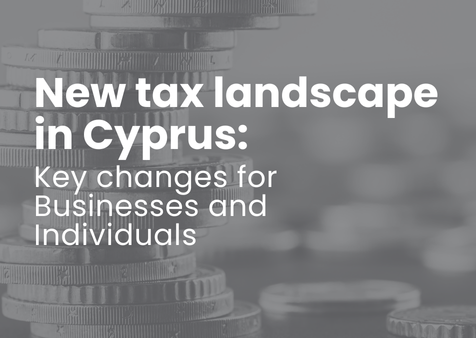In light of the latest developments that have caused upheaval all around the world and have put the Cyprus Investment Program in the spotlight, discussion of the possibility of revocation and deprivation of citizenship is a prominent topic.
Considering the above it would be right to clarify whether or not such a revocation can legally be accomplished and how straightforward or not such a procedure really is.
As per Section 113(2) of the Civil Registry Law 141(I) 2002 as amended, the Council of Ministers may issue a decree depriving a citizen of his/her citizenship if it is satisfied that the registration or the certificate of naturalization was acquired through deceit, false pretences or concealment of a material fact.
Furthermore, and subject to the provisions of Section 113(3), the Council of Ministers may issue a decree depriving any citizen, who is a naturalized person, of his citizenship, if it is satisfied that the citizen:
- Has demonstrated in words or in actions lack of loyalty or disgrace to the Republic; or
- During any war that is carried out by the Republic he engaged in transactions or came in contact with the enemy, or he engaged in a transaction or any operation which he was aware of that it was being conducted in such a manner that could help the enemy during the war; or
- He was sentenced to imprisonment in any country for no less than twelve months, within five years after his naturalization.
In certain cases and under specific circumstances, Section 113(4) indicates that the Council of Ministers may by Order deprive of his/her citizenship any citizen of the Republic, who is a naturalized person, if it is satisfied that this person was habitually residing in foreign countries for a continuous period of seven years and if during that period he did not:
- Spend any time in the service of the Republic or any International Organization, which the Republic is a member of; or
- Inform annually, in the prescribed manner, a Consulate of the Republic of his intention to retain his citizenship.
Pursuant to this Section, the Council of Ministers does not deprive any person of his citizenship unless it is satisfied that it is not conducive to the public interest that this person continues to be a citizen of the Republic.
Before a Decree is issued pursuant to Section 113, the Council of Ministers shall give the person against whom the decree is issued, written notice informing him of the reason for which the Decree shall be issued. If the Decree is to be issued pursuant to any of the reasons in the above-mentioned subsections (2) and (3), the affected person shall be particularly informed about the right to request an investigation, according to this Section.
In conclusion, if the Decree is to be issued pursuant to subsections (2) and (3) and the affected person requests an investigation, the Council of Ministers may refer the case to the Investigation Committee, appointed by the Council of Ministers specifically for this purpose. The Investigation Committee shall consist of the President, who shall have judicial experience, and a number of members that the Council of Ministers deem necessary.
Consequently, the revocation and deprivation of citizenship is not as straightforward as one may seem to think and there are laws and procedures that need to be taken into consideration when examining particular cases that may seem to fall within the Civil Registry Law.


